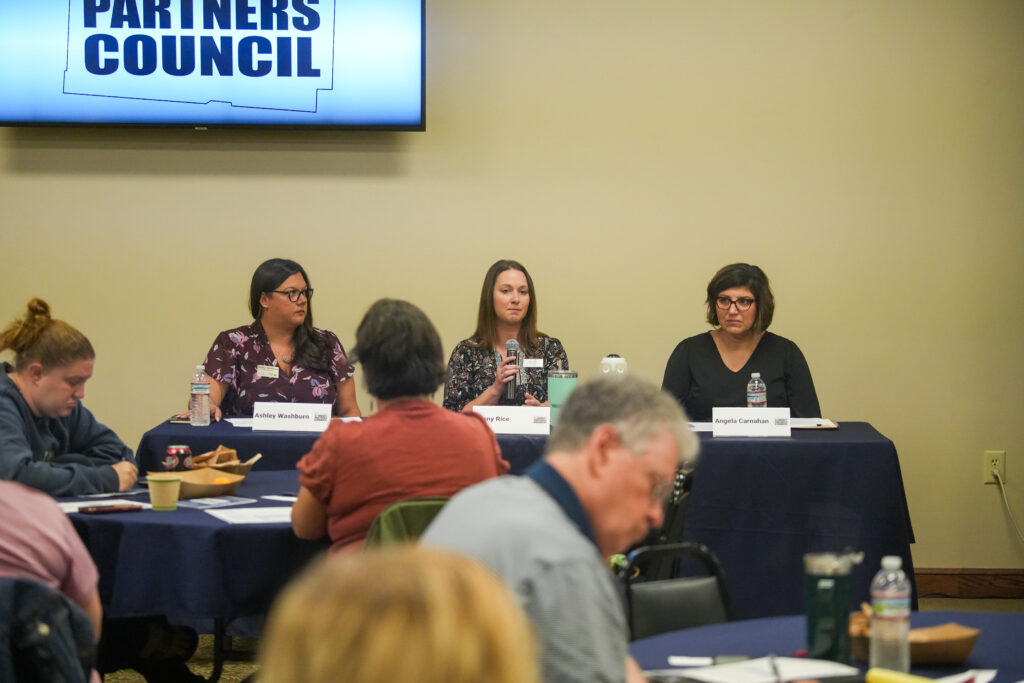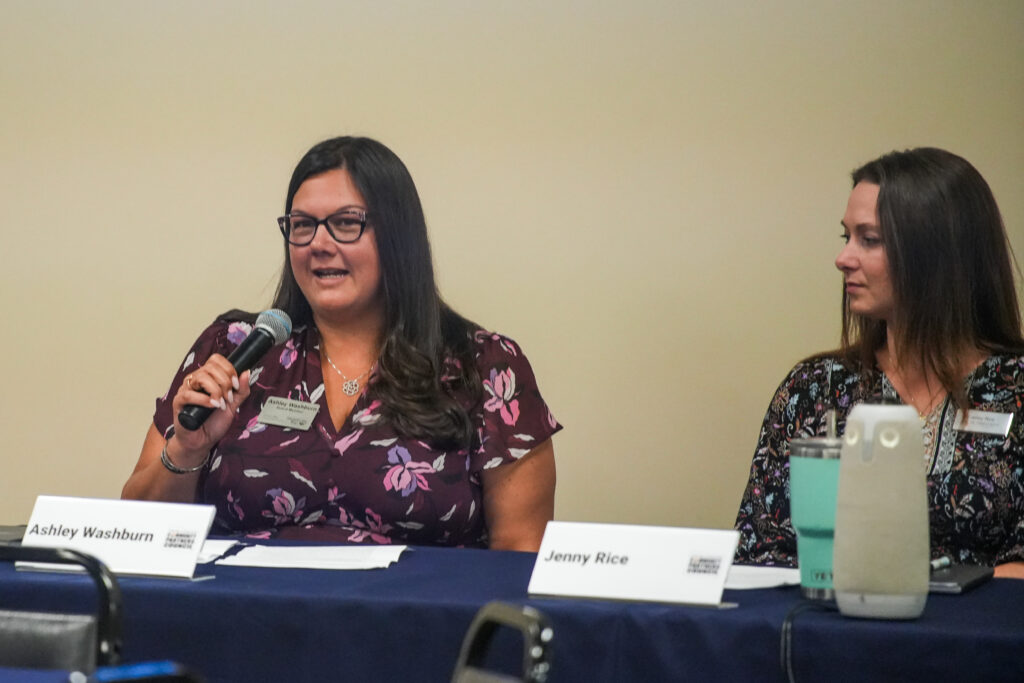Together, together, together. They repeated it over and over again. No matter who spoke, it rang out unfailingly during the Wednesday, Sept. 11 “community partners conversation” about low-income families in Licking County.
The community partners conversation, led by the United Way of Licking County and the Licking County Aging Partners, brought organizations from across the county to discuss ALICE: Asset Limited, Income-Constrained, Employed residents of Licking County.
The term describes individuals and households who earn above the federal poverty level but less than what’s needed to survive in the current economy.
“When ALICE struggles, we all struggle,” said Deb Dingus, executive director of the United Way of Licking County. “This is an opportunity for all of us to continue to provide programs, [and] support policies. Our community should come together.”
In Licking County, 37% of households — around 17,500 — fall in the ALICE threshold, and organizers are steadfast in ensuring the myriad causes are addressed.
Read more: 37% of Licking County households live one flat tire from financial disaster
Dingus, who is also a pastor at Holy Trinity Lutheran Church in Newark, spoke first, laying out the need to be flexible and adaptable as a community, after a brief acknowledgment of the terror attacks on Sept. 11, 2001.
Then it was time to address the increase in Licking County families in the ALICE threshold.
“The poverty level [in Licking County] has been staying fairly consistent,” said Cory Stutes, the community impact director of United Way of Licking County. “However, the folks that live within ALICE have really gone up. You can see in 2010 we were just over 12,000 households. And so in 2022, it was 17,500.”
And Stutes acknowledged that these figures were outdated. The number of households who meet the ALICE threshold in 2024 likely paint an even bleaker picture, one that needs more than a splash of hope, panelists said.
“This isn’t living in Licking County today,” Stutes said. “This is living in Licking County two years ago, which was a vastly different world than it is now. So we brought together a panel of experts.”
These experts included Ashley Washburn, executive director at Family Health Services of East Central Ohio Inc., Jenny Rice, a real estate consultant with The Raines Group, and Angela Carnahan, administrator for the Licking County Job and Family Services.


Washburn stressed the burden that reliable healthcare and childcare weigh on families within or below the ALICE threshold.
“The biggest I see would be health care,” said Washburn. “I think Licking County has a lot of small businesses that are unable to afford to offer benefits. The affordability and availability are both a huge problem.”
Rice agreed and pointed to the growing price of housing.
“The average sales price has grown by 5.7% over the last year, and that is up to $239,000, up from $151,000 in 2022 and $120,000 in 2020,” Rice said. “We have doubled our housing average price.”
Carnahan expanded on points made by the two other panelists incorporating the perspectives of employees, employers, and the government.
“From the job seeker side, we see a lot more homelessness. We see people who are working who don’t have a place to live,” said Carnahan. “From the employer side, they recognize that the job market is tight. And I feel like they have been trying to be more creative and open-minded when doing their hiring and their recruiting for employees.”
Carnahan spoke of some employers offering benefits and flexible hours to their employees, then brought it back to her work at Ohio Works First and explained the government perspective.
“When I was hired we probably had 13 workforce case managers. Each case manager had caseloads of 5- to- 600 families on cash assistance. Today, I will tell you that we have seven families on cash assistance,” said Carnahan.
Despite that remarkable drop in families needing cash assistance, Carnahan acknowledged that the responsibilities for employers and employees alike keep piling up.
“And now we have to pay for childcare so you can do that,” said Carnahan. “Now we have to help you with transportation so you can do that. Now we have to make sure you have clothes to do that. So it is more expensive.”
Noah Fishman writes for TheReportingProject.org, the nonprofit news organization of Denison University’s Journalism program, which is supported by generous donations from readers. Sign up for The Reporting Project newsletter here.

